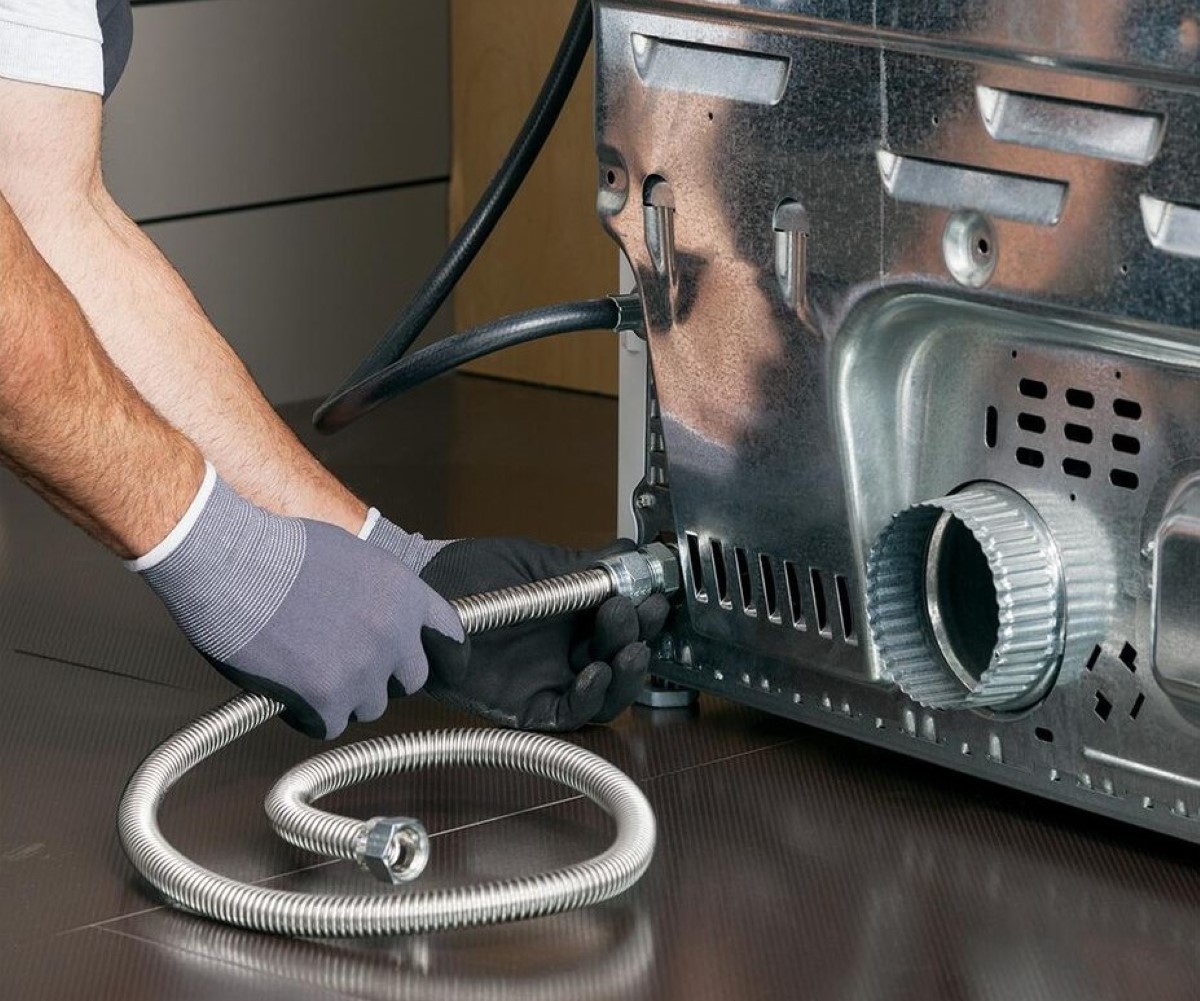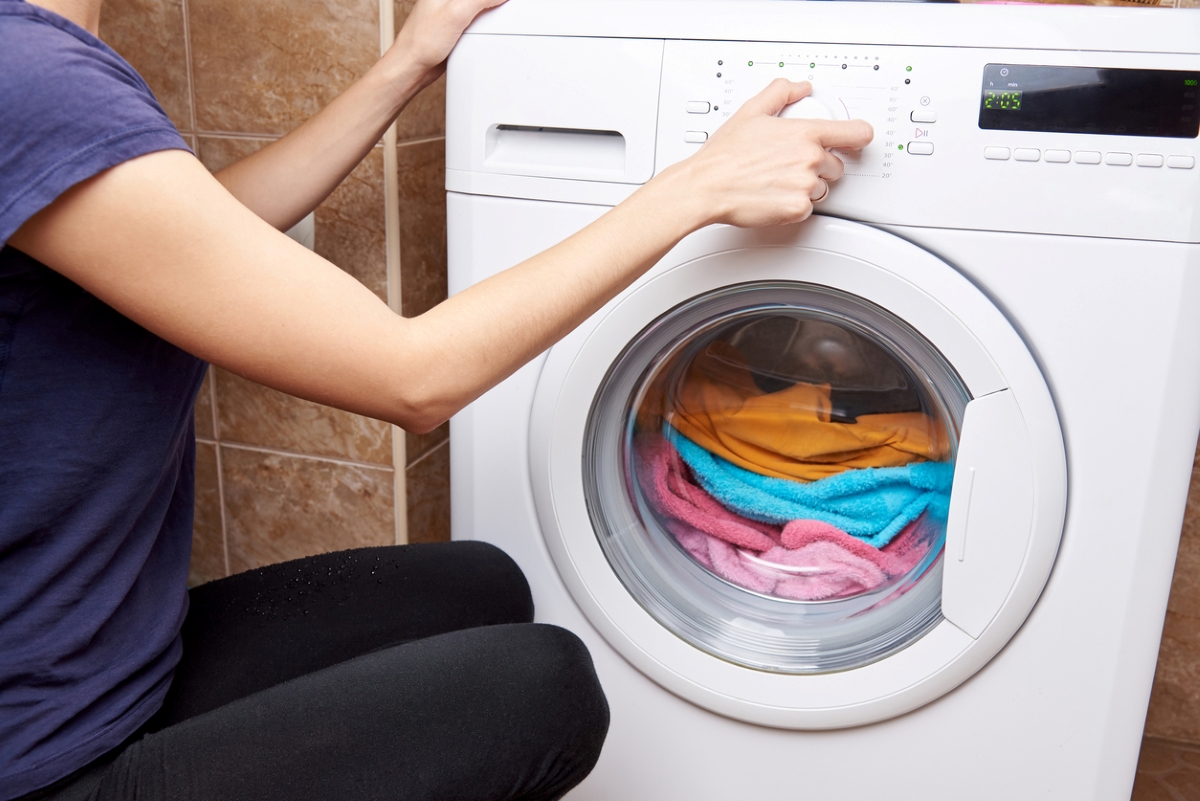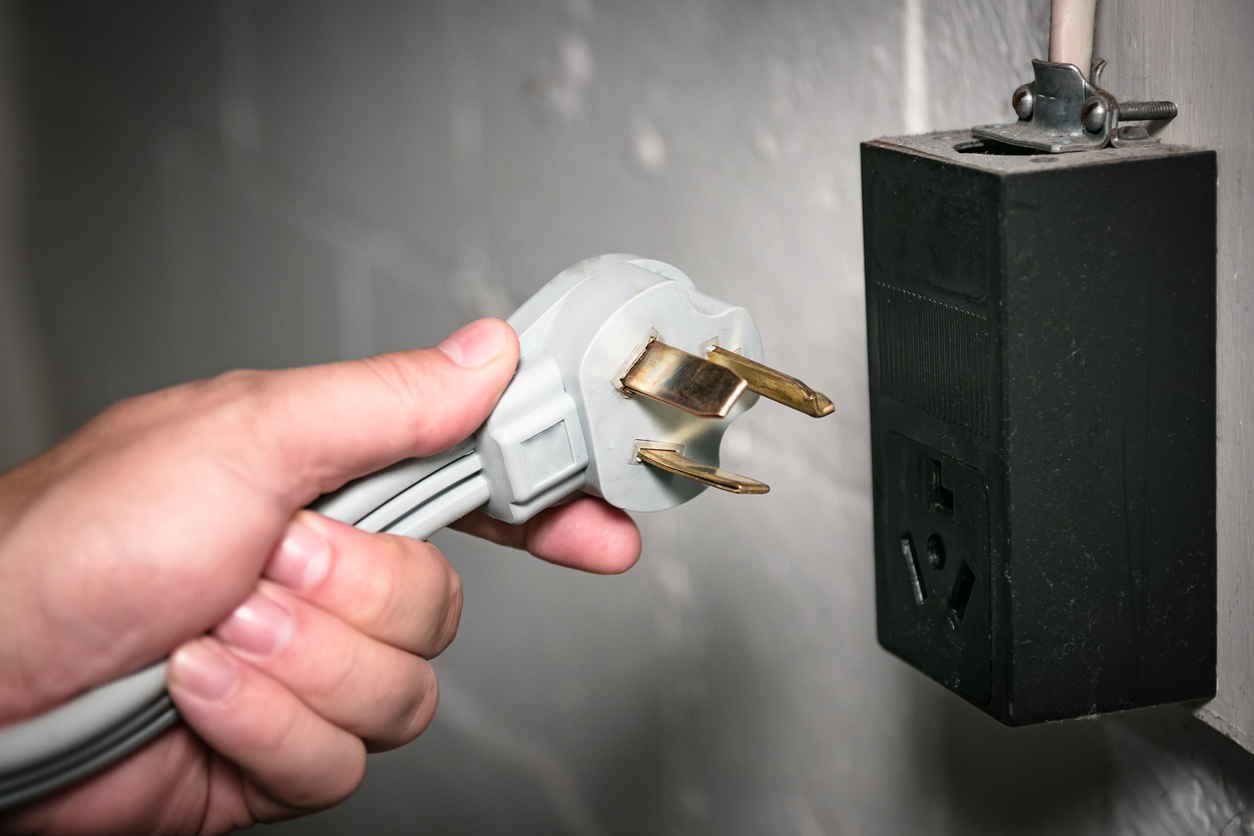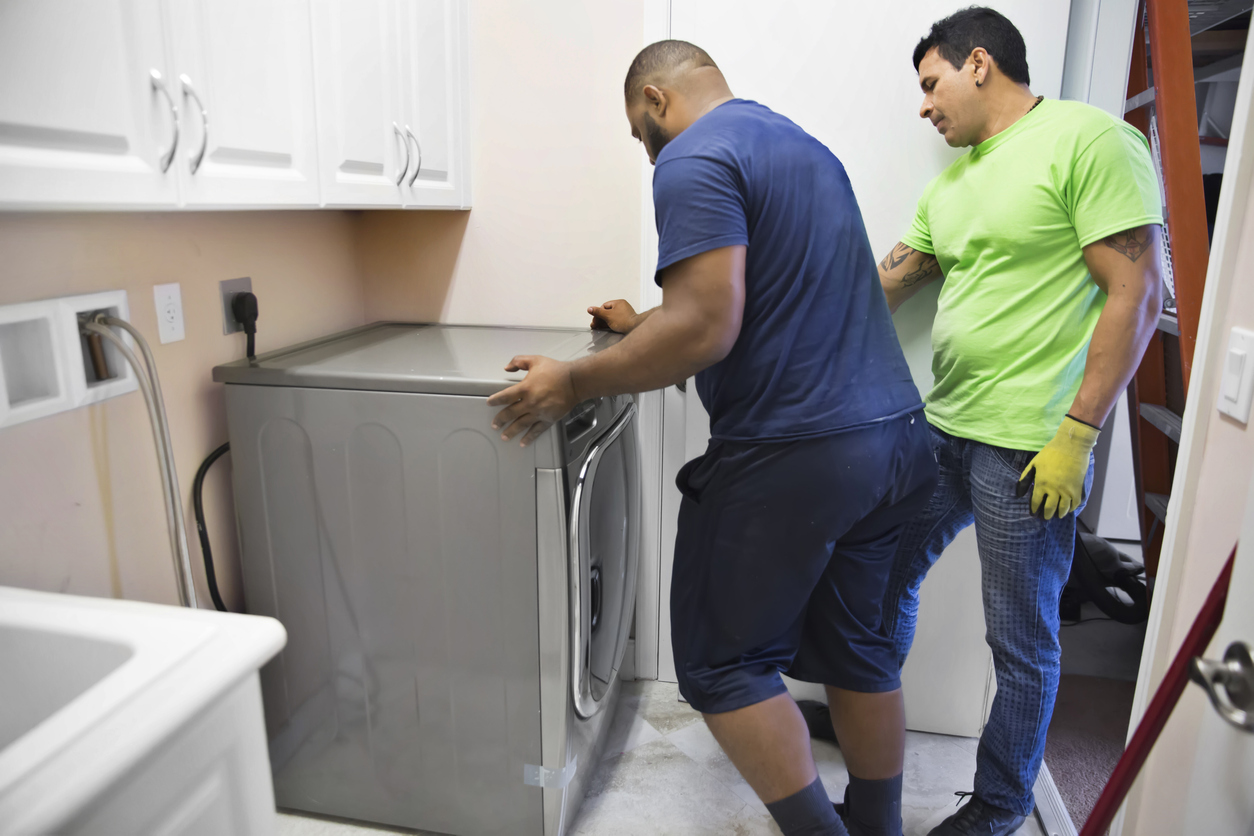

We may earn revenue from the products available on this page and participate in affiliate programs. Learn More ›
One of your home’s hardest-working appliances is the clothes dryer. If yours is about to conk out, you’ll soon be in the market for a new one. For many homeowners, the type of dryer you select ultimately comes down to the existing utility hookups in your home. If you have the flexibility to choose between a gas vs. electric dryer, however, understanding the differences between them will help you make a more informed decision about which is best for your household.
Gas Dryer: Pros and Cons

Gas dryers are typically connected to a municipality’s natural gas line, but they can also run on propane. The gas hookup provides the dryer’s heat, but gas dryers still require electricity to run the fan, drum, and controls. Because much of their power comes from gas, these dryers use less electricity than electric dryers. They usually cost more up front, but you can potentially save money on long-term energy costs with a gas dryer.
Pros
- Faster drying time
- More energy efficient
- Produces less static electricity
Cons
- Installation requires a gas line
- Higher upfront costs
- Limited installation locations
- Risk of gas leaks
RELATED: The Best Dryers for the Laundry Room
Electric Dryer: Pros and Cons

Unsurprisingly, electric dryers run on electricity. They take longer to dry clothes than do gas dryers, and can thus potentially increase your long-term energy costs (and clothing wear and tear) compared to their gas counterparts. On the upside, they tend to cost less up front, and if you need flexibility in where you locate your dryer, it’s typically not a big problem for an electrician to install a 240-volt outlet wherever you need it. Keep in mind that, depending on the type of electric dryer you have, you may need a way to vent the dryer.
Pros
- Lower up-front costs
- Easier to install
- Installation location is flexible
- Lower safety risk
Cons
- Longer drying time
- Less energy efficient
- Requires a 240-volt outlet
Which dryer is cheaper?
When considering an electric dryer vs. a gas dryer, cost is always a consideration. A mid-range electric dryer costs around $400 to $600, while a mid-range gas dryer will set you back $500 to $750. On average, gas dryers cost $100 more than electric dryers of the same style and quality.
When it comes to high-end dryers, however, the price differences are less noticeable. A top-end dryer, regardless of type, usually costs $1,200 to $1,600. At that range, added costs have less to do with the power source and more to do with bells and whistles such as whisper-quiet operation, delayed start modes, and steam cycles.
All ventless dryers, like this model from GE, are electric. For these you’ll pay, on average, $75 to $125 more than you would for a standard vented model.
Winner: Electric dryer
Which dryer is more energy efficient?
Gas dryers don’t use electricity for their heating components and they dry clothes the fastest, so they’re more energy efficient than electric dryers. In most areas, natural gas and propane are less expensive than electricity, so it costs approximately half as much to dry a load in a gas dryer versus an electric one.
Gas dryers typically cost 15 to 25 cents per load to dry, whereas it may cost 30 to 40 cents per load in an electric dryer. While you will pay more initially for a gas dryer, the energy savings over time will often make up the difference.
Winner: Gas dryer
RELATED: My Dryer Won’t Start—What’s the Problem, and How Do I Fix It?
Which dryer dries clothes more quickly?

On average, a gas dryer can dry a load in about half the time of an electric dryer. Gas dryers heat up faster because their burners fire immediately, producing instant heat. Electric dryers’ heating elements take longer to warm up, and they don’t get as hot as a gas burner, so drying times are longer (though there are a few things you can do to help it dry clothes faster).
Winner: Gas dryer
RELATED: Why Is My Dryer Not Heating? Solved!
Which dryer is safer to operate?
Gas-powered appliances always pose a concern because ill-fitting gas connections can lead to gas leaks in the home, which is a potential fire hazard. Improperly vented gas dryers also increase the risk of carbon monoxide poisoning. If you have any gas appliances, it’s a good idea to have a carbon monoxide detector nearby. Electric dryers pose a small risk of fire or electrocution due to improper installation or faulty wiring, but they’re not as high-risk as gas dryers.
However, when they’re properly installed and maintained, both gas and electric dryers are safe household appliances. Proper maintenance includes emptying lint filters after every load, not overloading the dryer, and not using an extension cord.
Winner: Electric dryer
Which dryer is easier to install?

A handy homeowner can often install an electric dryer just by plugging it into a 240V outlet and connecting its vent hose to an in-wall exhaust hookup. To hook up a gas dryer, however, you’ll need to hire a licensed plumber because gas dryer connections must be fitted and tested to ensure that no gas leaks will occur.
Gas dryers also need to be connected to a gas line, so they can only be installed in rooms within close proximity to the line. When purchasing a gas dryer, plan on factoring in an additional $75 to $125 to pay a plumber for this hookup.
Winner: Electric dryer
RELATED: How to Clean a Dryer
Which dryer is easier to maintain?
A DIYer can often troubleshoot operating problems with an electric dryer, such as replacing worn belts or a faulty switch themselves. But repairs to gas dryers usually require a qualified technician.
A typical service call, excluding any necessary replacement parts, can run $75 to $125, and if the technician must make more than one trip, costs add up quickly. During the warranty period for either type of dryer, contact the manufacturer and have them set up the service call, which can save you money.
Winner: Electric dryer
Which dryer lasts longer?
Gas and electric dryers have similar lifespans. Electric dryers have an average lifespan of 14 years, while gas dryers last for around 13 years, so longevity shouldn’t be a major factor when weighing the difference between gas vs. electric dryers.
Winner: It’s a tie
RELATED: Solved! How Long Do Washers and Dryers Last?
Final Thoughts

The right dryer for you depends on your priorities. If you’re looking to save on up-front costs and you need flexibility around where you install the dryer, then an electric dryer is a great choice. But if energy efficiency and fast drying times are your biggest priorities, then a gas dryer is a better fit. Once you decide on the type, learn all about the best dryers so you can find the perfect option for your household.
